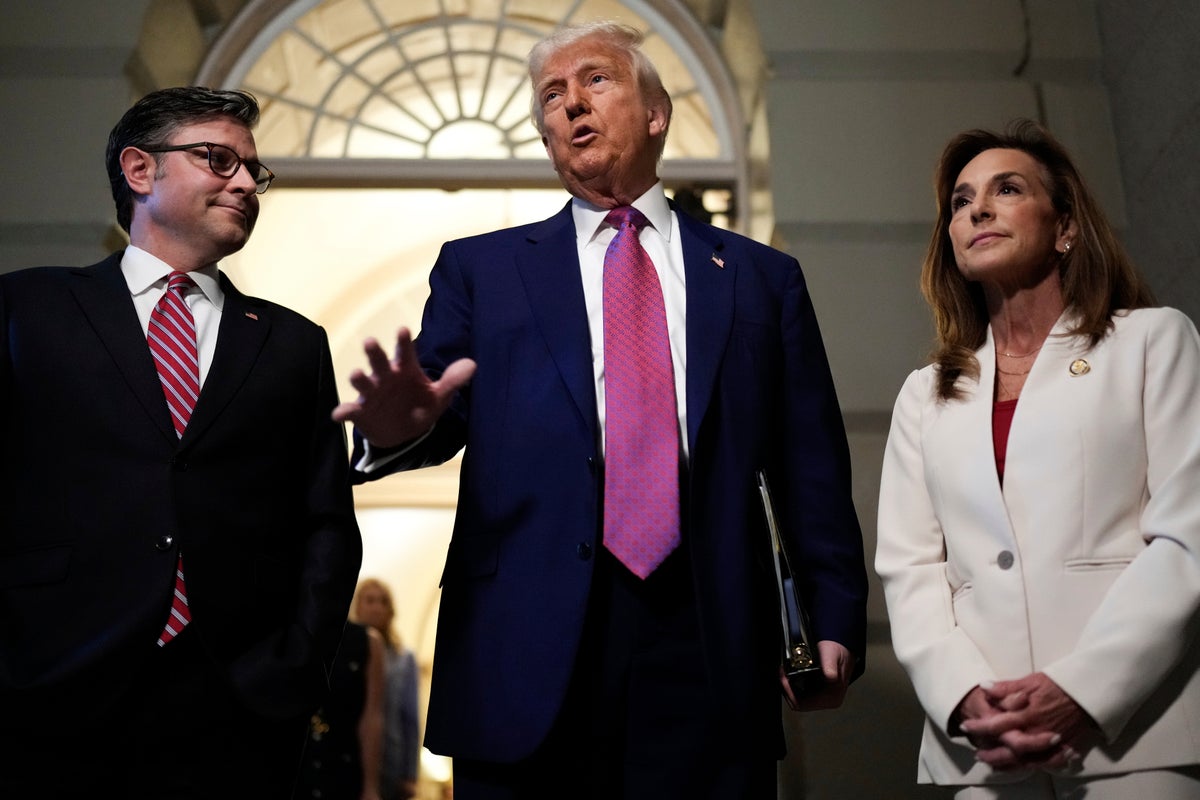This website uses cookies so that we can provide you with the best user experience possible. Cookie information is stored in your browser and performs functions such as recognising you when you return to our website and helping our team to understand which sections of the website you find most interesting and useful.

President Donald Trump’s “One Big, Beautiful Bill” passed in the House Rules Committee after an aggressive pressure campaign by the president.
The passage of the legislation through the Rules Committee likely sets up the bill for a smooth passage through the House of Representatives either early Thursday morning in the afternoon.
The vote came after the committee spent more than 24 hours of deliberation. Conservatives and Republicans from swing districts expressed their strong objections to the bill. Conservatives wanted steeper cuts and changes to Medicaid, while Republicans from states with Democratic governments wanted to restore a tax deduction.
The Rules Committee convened at 1:00 a.m. on Wednesday morning, where members voted on numerous amendments to the legislation.
But Reps. Chip Roy of Texas and Ralph Norman of South Carolina of the right-wing House Freedom Caucus voiced their frustrations that the bill did not go far enough on spending cuts, despite the fact they won a major concession in moving up work requirements for Medicaid.
The objections led to a last-minute meeting at the White House with Trump, House Speaker Mike Johnson and members of the Freedom Caucus.
But a series of last-minute deals came to fruition to satisfy both Republicans in swing districts and hardline conservatives.
The final deal moved up work requirements from being enacted in 2029 to December 31, 2026. In addition, Medicaid dollars went from going to gender-affirming care for transgender youth to restricting gender-affirming care for any Medicaid recipient. The bill also provides an addition $12 billion of money to the US-Mexico border. In addition, the bill also removes a tax on silencers, a demand from Georgia Republican Rep. Andrew Clyde.
The legislation would also mandate a quicker-then-planned phaseout of some of the renewable energy tax credits in the Inflation Reduction Act, President Joe Biden’s signature environmental legislation.
In the same token, the bill also changed the name of “MAGA Accounts,” a tax-advantaged account for children eight years old and younger and for children born between 2025 and 2028, to “Trump Accounts.”
The shuttle negotiations coordinated by Johnson, a strident conservative, and Trump to pressure conservatives showed the urgency to pass the president’s signature piece of legislation.
Despite a late-night deal struck between Johnson and Democrats in states like New York, the amendment detailing the changes was not made available to the public for much of the hearing.
On Tuesday morning, Trump visited the Capitol to make the case for the passage of the bill. Trump insisted that the legislation would not make sweeping changes to Medicaid, the program meant for poor people, pregnant women, children and people with disabilities, as well as many elderly in nursing homes.
“We're not doing any cutting of anything meaningful,” he insisted on Tuesday morning. “The only thing we're cutting is waste, fraud, and abuse. With Medicaid – waste, fraud, and abuse. There's tremendous waste, fraud, and abuse.”
But an estimate from the nonpartisan Congressional Budget Office found that if Congress passed all the changes put in place during the mark-ups in committee, 7.6 million people could lose their Medicaid coverage, and an additional 3.1 million could lose coverage they receive through the 2010 health-care law, also known as the Affordable Care Act or Obamacare.
In addition, CBO found that if the bill passed, that that the bottom ten percent of US households would lose 4 percent of their income in 2033 as the incomes of the top 10 percent of households would increase by 2 percent in 2033.
Democrats for their part criticized the rushed process.
“it's clear that they know that gutting Medicaid is horrible for the country,” New York Rep. Alexandria Ocasio-Cortez told The Independent. “For Republicans, Democrats, Independents alike. But they are laser-focused on giving these tax breaks to billionaires and cutting Medicaid.”
Even some Republicans objected to holding the hearing at 1:00 AM.
“I don't think that's the right way to do business,” Roy told The Independent. In the end, Roy would miss the vote on Wednesday evening.
The legislation would ramp up spending for the U.S. military, immigration enforcement along the U.S.-Mexico border and oil drilling. It would also extend the 2017 tax cuts that Trump signed into law.
The late-night vote on the legislation is the second time in a week that Republicans have held a markup on the vote on the legislation. On Sunday evening, the House Budget Committee held a vote on the legislation at 10 p.m., which came after Roy and other members of the House Freedom Caucus objected to the bill the previous Friday.
With only 220 seats, Republicans can only risk losing a handful of votes.
Senate Republicans, who only have 53 seats, plan to pass the legislation under reconciliation, a process with strict rules that allows for a bill to avoid a filibuster as long as it relates to the budget.
Republicans in the House hope to pass the bill before the Memorial Day holiday. But the legislation still faces significant hurdles in the Senate, with many Republicans in the upper chamber pushing for significant changes.



 Africana55 Radio
Africana55 Radio 
